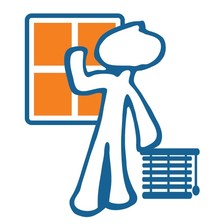
Get matched with top chimney liner installation pros in Bunkerville, NV
Enter your zip and get matched with up to 5 pros
Need a pro for your chimney liner installation project in Bunkerville, NV?
Verified Reviews for Chimney Liner Installation pros in Bunkerville, NV
*The Angi rating for Chimney Liner Installation companies in Bunkerville, NV is a rating based on verified reviews from our community of homeowners who have used these pros to meet their Chimney Liner Installation needs.
*The HomeAdvisor rating for Chimney Liner Installation companies in Bunkerville, NV is a rating based on verified reviews from our community of homeowners who have used these pros to meet their Chimney Liner Installation needs.
Last update on January 08, 2026
Find Chimney liner installation pros in Bunkerville

United Home Services
United Home Services
We are a locally owned and operated company with 18 years of service. We value honesty, integrity, and stand behind our work. We specialize in garage doors and openers, but also offer dryer vent and chimney cleaning, and a variety of related projects. We pride ourselves on the quality of our work, as well as our commitment to outstanding results. We look forward to building long-term relationships with our clients, and guarantee your satisfaction!
"Terrible experience. Told it was $150, with no other information other than they will be there between 2 & 5pm. We thought we were getting our whole chimney cleaned, turned out to only be the most basic of cleanings with just a shop vac. I could have done that for free myself. The guy was so extremely pushy and asked us 8 or 9 times if we were sure we didn?t want the $450 service. Terrible experience. DO NOT USE THIS COMPANY!"
Randall L on October 2025
We are a locally owned and operated company with 18 years of service. We value honesty, integrity, and stand behind our work. We specialize in garage doors and openers, but also offer dryer vent and chimney cleaning, and a variety of related projects. We pride ourselves on the quality of our work, as well as our commitment to outstanding results. We look forward to building long-term relationships with our clients, and guarantee your satisfaction!
"Terrible experience. Told it was $150, with no other information other than they will be there between 2 & 5pm. We thought we were getting our whole chimney cleaned, turned out to only be the most basic of cleanings with just a shop vac. I could have done that for free myself. The guy was so extremely pushy and asked us 8 or 9 times if we were sure we didn?t want the $450 service. Terrible experience. DO NOT USE THIS COMPANY!"
Randall L on October 2025
New River Masonry
New River Masonry
Residential or commercial masonry and hardscape construction.
Residential or commercial masonry and hardscape construction.
Total Home Care
Total Home Care
Total Home Care is a home repair company in service since 2008 with two owner/operator's
Total Home Care is a home repair company in service since 2008 with two owner/operator's
Clean Sweep NV
Clean Sweep NV
Low priced Efficient Clean chimney Cleaning. Local Owned and Operated Payments accepted by Credit Card, PayPal, and Cash. Billing to Company's Only Licensed and Insured
Low priced Efficient Clean chimney Cleaning. Local Owned and Operated Payments accepted by Credit Card, PayPal, and Cash. Billing to Company's Only Licensed and Insured
The Bunkerville, NV homeowners’ guide to chimney liner installation services
From average costs to expert advice, get all the answers you need to get your job done.
 •
•Chimney sweep costs can be dramatically affected by the type of chimney, its location, and how dirty it is.

Chimney liners are important for fire safety and energy efficiency in your home. Learn how much chimney liners cost based on type, size, material, and other factors.
 •
•Find out the average chimney cap replacement cost, key price factors, and ways to save and budget for your chimney cap project.

A chimney liner helps make your fireplace safer and more efficient. Here’s a closer look at who can install a chimney liner.

Learn how to fit a chimney liner safely and decide whether to DIY or hire a pro to complete the job.

Discover how to install a chimney cap, what to consider whn purchasing a chimney cap, and the benefits of chimney cap installation.
- Logandale, NV Chimney liner installation pros
- Overton, NV Chimney liner installation pros
- Santa Clara, UT Chimney liner installation pros
- Ivins, UT Chimney liner installation pros
- Moapa, NV Chimney liner installation pros
- Saint George, UT Chimney liner installation pros
- Mesquite, NV Chimney liner installation pros
- Washington, UT Chimney liner installation pros
- Dammeron Valley, UT Chimney liner installation pros
- Leeds, UT Chimney liner installation pros
- Central, UT Chimney liner installation pros
- La Verkin, UT Chimney liner installation pros
- Toquerville, UT Chimney liner installation pros
- Enterprise, UT Chimney liner installation pros
- North Las Vegas, NV Chimney liner installation pros
- Apple Valley, UT Chimney liner installation pros
- Hurricane, UT Chimney liner installation pros
- Nellis Afb, NV Chimney liner installation pros
- Caliente, NV Chimney liner installation pros
- Hildale, UT Chimney liner installation pros
- Boulder City, NV Chimney liner installation pros
- Henderson, NV Chimney liner installation pros
- Pioche, NV Chimney liner installation pros
- Cedar City, UT Chimney liner installation pros
- Dolan Springs, AZ Chimney liner installation pros
- 🌱 "Mow a small front yard"
- 🛠 "Fix a leaking pipe under the sink"
- 🏠 "Repair shingles on an asphalt roof"



